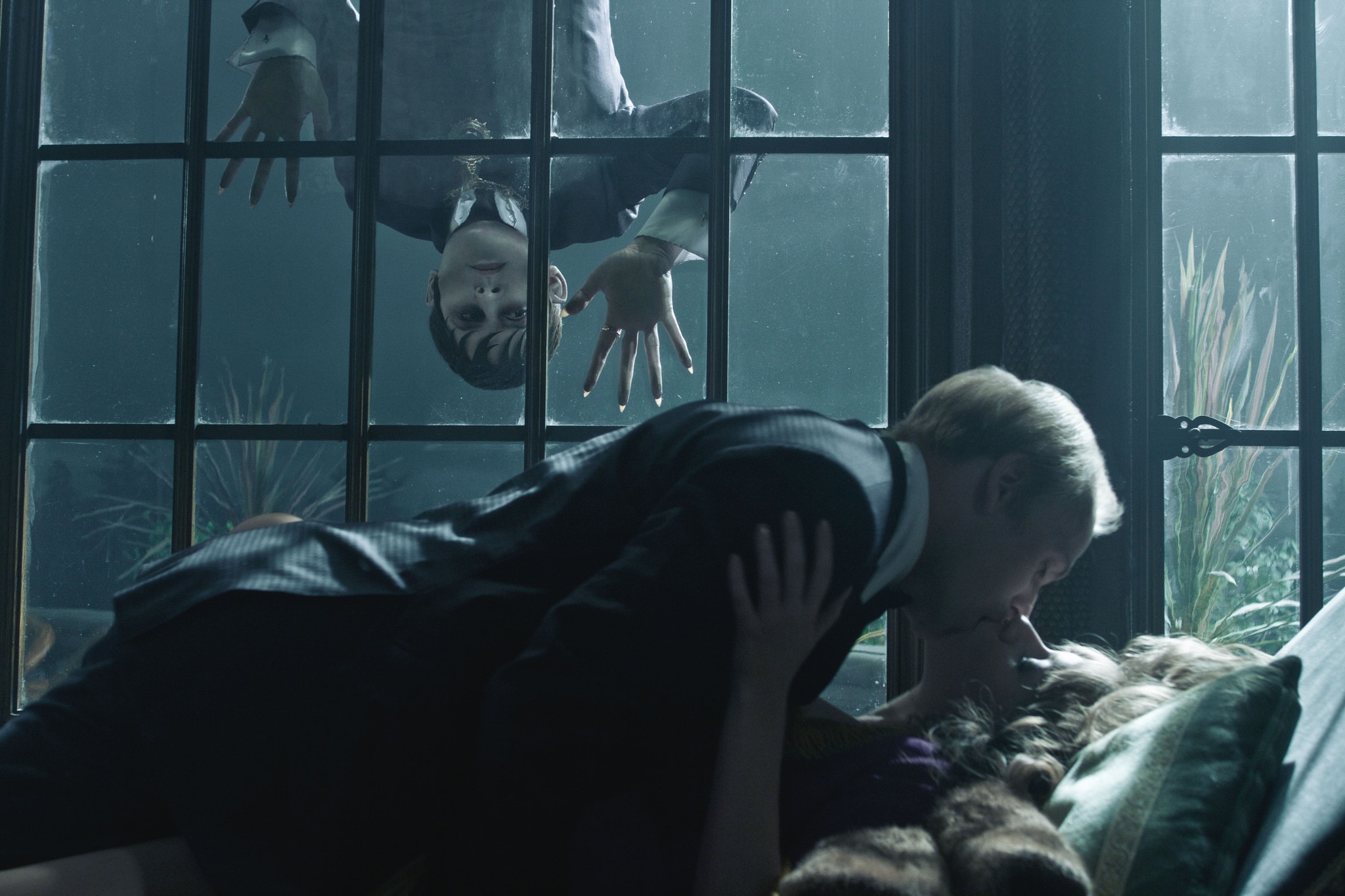Dark Shadows (2012)

“Dark Shadows,” directed by Tim Burton and released in 2012, is a unique cinematic reinterpretation of the iconic Gothic soap opera that originally aired on ABC from 1966 to 1971. With a screenplay by Seth Grahame-Smith, this film seeks to blend the original series’ eerie atmosphere with Burton’s distinctive visual style and dark humor. The film features a notable cast including Johnny Depp, Eva Green, and Michelle Pfeiffer, bringing a fresh take on the beloved characters and storylines of the original soap opera.
“Dark Shadows” follows the story of Barnabas Collins (Johnny Depp), a wealthy and aristocratic vampire who is awakened from a centuries-long slumber in the 1970s, only to find that his once-grand estate, Collinwood Manor, has fallen into disrepair. The film delves into Barnabas’s attempts to reclaim his former life and restore his family’s legacy, while contending with the various supernatural and mundane challenges that arise.
The central plot revolves around Barnabas’s return to a world that has drastically changed since his time, his efforts to reconnect with his descendants, and his conflict with a powerful witch named Angelique Bouchard (Eva Green), who harbors a longstanding vendetta against him. As Barnabas struggles with the new era’s norms and values, he must confront not only external threats but also his own complex past.
Thematically, “Dark Shadows” explores concepts of time and change, identity, and redemption. Barnabas’s journey from a powerful vampire to a relic of a bygone era underscores the film’s exploration of how time alters both personal and societal values. The theme of redemption is also central, as Barnabas seeks to rectify past wrongs and reclaim his place within a family that has been fragmented by time and supernatural forces.
Johnny Depp delivers a memorable performance as Barnabas Collins, embodying the character’s blend of sophistication, brooding intensity, and comedic absurdity. Depp’s portrayal captures Barnabas’s struggle to adapt to the modern world while maintaining his dignified demeanor. His performance adds depth to the character, balancing moments of dark drama with quirky humor.
Eva Green’s portrayal of Angelique Bouchard is both captivating and menacing. Green brings a seductive yet formidable presence to the role, creating a powerful antagonist whose vendetta against Barnabas drives much of the film’s conflict. Her performance adds a layer of complexity to the film, providing a formidable foil to Depp’s character.
Michelle Pfeiffer plays Elizabeth Collins Stoddard, the matriarch of the Collins family. Pfeiffer’s performance adds a sense of gravitas and emotional depth to the film, portraying a character who is both resilient and empathetic. Her interactions with Depp’s Barnabas provide a key emotional anchor for the film’s narrative.
Tim Burton’s direction in “Dark Shadows” is characterized by his signature visual style, which blends Gothic elements with whimsical and surreal touches. Burton’s use of color, lighting, and set design creates a visually striking and atmospheric setting that pays homage to the original series while adding his own unique flair. The film’s aesthetic captures the essence of both the supernatural and the absurd, reflecting Burton’s distinctive approach to storytelling.
The screenplay, written by Seth Grahame-Smith, combines elements of horror, comedy, and drama, creating a narrative that is both engaging and entertaining. The script effectively balances the film’s darker themes with moments of humor and satire, capturing the essence of the original soap opera while modernizing it for contemporary audiences. The dialogue and character interactions provide both depth and levity, enhancing the film’s overall appeal.

The visual style of “Dark Shadows” is a hallmark of Tim Burton’s filmmaking, featuring elaborate costumes, intricate set designs, and a distinct color palette. The film’s use of visual effects and practical effects creates a fantastical and otherworldly atmosphere, enhancing the supernatural elements of the story. Burton’s direction ensures that the film’s visual presentation is both striking and cohesive, contributing to its overall impact.
The tone of the film is a mix of Gothic horror, dark comedy, and drama. The score, composed by Danny Elfman, complements the film’s tone with a blend of haunting and whimsical music, adding to the film’s atmospheric qualities. The film’s balance of humor and horror creates a unique viewing experience that reflects both the original series’ roots and Burton’s modern sensibilities.

“Dark Shadows” received mixed reviews from critics, with praise directed at the film’s visual style, performances, and humorous elements, while criticism was aimed at its pacing and tonal inconsistencies. Despite the mixed reception, the film was appreciated for its unique take on the classic soap opera and its ability to blend dark humor with supernatural themes.
The film’s impact lies in its successful revival of the “Dark Shadows” franchise and its introduction to a new generation of viewers. By blending elements of the original series with Tim Burton’s distinctive vision, “Dark Shadows” contributes to the ongoing fascination with Gothic and supernatural storytelling in contemporary cinema.

In summary, “Dark Shadows” is a visually captivating and thematically rich film that combines the Gothic elements of the original soap opera with Tim Burton’s unique directorial style. Featuring strong performances from Johnny Depp, Eva Green, and Michelle Pfeiffer, the film explores themes of time, identity, and redemption while delivering an engaging blend of horror, comedy, and drama. Through its distinctive visual presentation and narrative approach, “Dark Shadows” offers a memorable cinematic experience that pays tribute to its origins while carving out its own place in the world of supernatural cinema.








